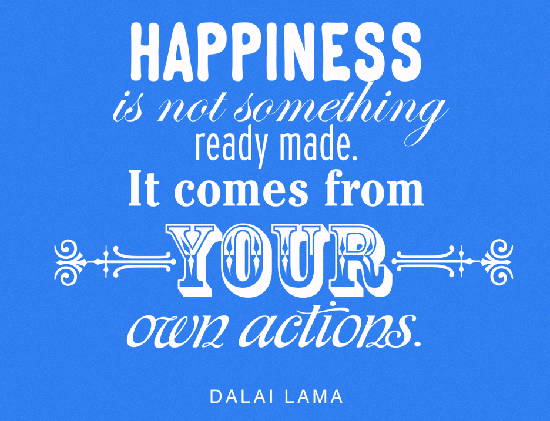Life
9 Things You Seriously Need To Drop To Be Happy

Such a widely searched term nowadays is “How to be happy?”
We all want to be happy right? We fight for it. We live for it. We try to find it.
And that’s the problem: We’re chasing it.
It’s time to stop looking elsewhere and look within instead. As you reflect, you’d probably find a ton of things that you can let go of to be happy.
So here we will highlight 9 things you seriously need to drop to be happy.
Here are 9 things you seriously need to drop to be happy
1) Attachment to results
In other words, you need to stop having high expectations in whatever it is you do. That’d be only serve to make you feel attached to a supposedly good result.
Let go of the attachment. Whatever happens, will happen. Accept it, learn from it, grow and keep enjoying the process.
2) Toxic friends
Sometimes, your lack of happiness could be due to your surroundings. Drop the toxic friends. They’re anchors weighing you down. Find positive friends instead. They’ll inspire you and lift you up all the time.
3) The chase for money
I get it. Money is important. We all have our responsibilities after all.
But what can I say except that the decision to chase money is always your choice.
Try to make this shift. You’d realize how deserving you are of money.
4) Finding love
Don’t find love. Do what you love, and love will find you.
It’s not that cliché. If you try too hard to find somebody to be with, you end up coming across as needy. That’s not attractive. If you do what you love and enjoy it, you become attractive as you exude confidence and charisma.
5) Your clutter
This is kind of like the first point. You may be too attached to a lot of unnecessary things in your life.
Clean up your room and get rid of the clutter. A healthy environment produces a happy mind.
Let go of certain objects of value too, like your first car. You may be holding on too tight. Sometimes you’ve to liberate yourself to move forward.
6) Social media
You’re subconsciously boring yourself in the search of entertainment in social media. Unfortunately, most people don’t realize that it’s mindless and draining. Also, with mobile apps today, we’re not aware of our surroundings when we head out.
Drop it. Start being aware and appreciate nature. Find better hobbies too, like reading.
7) The past and future
Drop the past, for it does not exist anymore. Whatever happened during that time and whoever hurt you don’t matter anymore.
Drop the future for you cannot ever have full control of all events. Embrace uncertainty and let it all take care of itself.
8) Ideas of getting back at them
I know how it feels like to want to exact “revenge” or find ways to get back at other people when you’re wronged or hurt.
But you’ve got to drop it. It doesn’t do you any good at all. As they say, resentment is the poison you drink hoping someone else would die.
Focus on yourself and your life instead. Choose to be happy by doing what you love and becoming awesome.
9) Over reliance of happiness guides
I’m talking about blogs, courses, seminars, friends and family.
They can all help you, but they’re only dare to guide you. No one except you can choose to be happy.
Make the right choice. Then get out there and start taking action. You’re going to have to create your own experience and memories, things which you can truly call your own.
A truthful life is a happy one. Go for it.

Life
Why Moving to a New City Can Change Your Mindset
Discover how moving to a new city boosts neuroplasticity, builds resilience, and reshapes your mindset

Relocation is always a challenge. Rebuilding and restarting your life requires you to step outside of your comfort zone. (more…)
Change Your Mindset
The Hidden Reason You Can’t Stay Consistent
If motivation keeps failing you, the real issue isn’t discipline. It’s the identity shaping your habits and long-term success.

Success often looks like a time-management problem. You buy a planner, set reminders, and hope that next week will be different. For a few days, it works. Then stress hits, motivation drops, and old patterns return. (more…)
Did You Know
How Skilled Migrants Are Building Successful Careers After Moving Countries
Behind every successful skilled migrant career is a mix of resilience, strategy, and navigating systems built for locals.

Moving to a new country for work is exciting, but it can also be unnerving. Skilled migrants leave behind familiar systems, networks, and support to pursue better job opportunities and a better future for their families. (more…)
-

 Business4 weeks ago
Business4 weeks agoHow Smart Brands Use Instagram Data to Outperform Competitors
-

 Business4 weeks ago
Business4 weeks agoThe Paradox of Modern Work: Can Tech Make Us More Human?
-

 Change Your Mindset3 weeks ago
Change Your Mindset3 weeks agoThe Hidden Reason You Can’t Stay Consistent
-

 Change Your Mindset3 weeks ago
Change Your Mindset3 weeks agoThe Real Psychology Behind Quitting Too Soon
-

 Entrepreneurs2 weeks ago
Entrepreneurs2 weeks agoThe Six Pillars That Ground Purpose-Driven Leadership (The Berenyi Life Blueprint)
-

 Business3 weeks ago
Business3 weeks agoDIY vs Delegate: The Real Reason You’re Burned Out
-

 Business3 weeks ago
Business3 weeks agoHow AI Agents Can Quietly Expose Your Business to Serious Risk
-

 Life2 weeks ago
Life2 weeks agoWhy Moving to a New City Can Change Your Mindset






























20 Comments